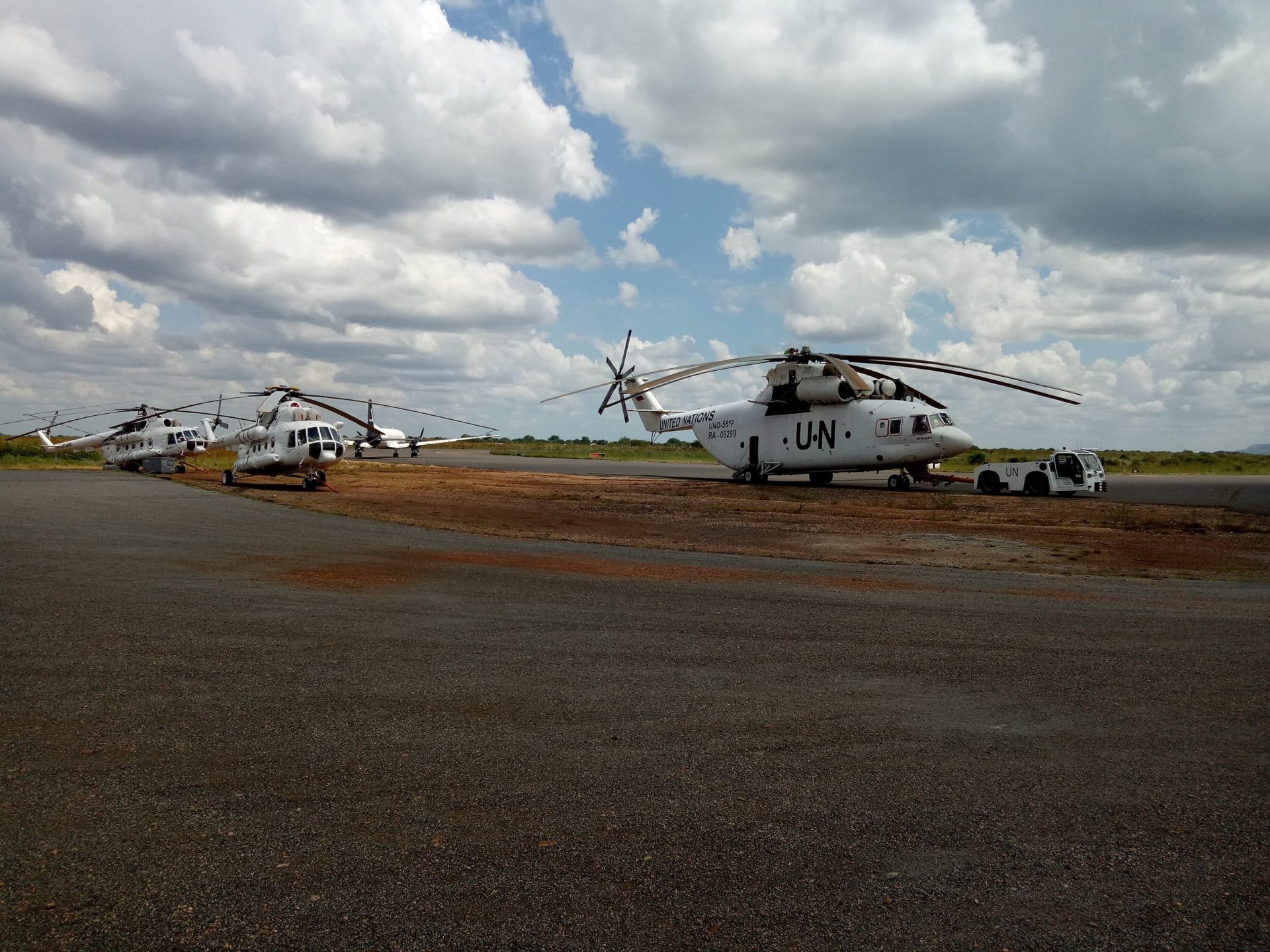
The people of Sudan are making significant strides to achieve peace and security. Still, will international promises and domestic commitments be enough to pull this fragile country out of a decades-long freefall of conflict and instability?
With the constant upheaval plaguing our domestic politics, most Americans forget what is going on overseas in general, let alone Sudan. But recently, President Trump announced the State Department would remove Sudan from its ‘state sponsors of terrorism’ list. It is a monumental step forward for a country crippled by the designation economic implications since 1993. The decision comes weeks after Sudan’s transitional government announced that the new constitution would separate religion and state. Instead of establishing a state religion, the government will create a national commission to protect the “multi-racial, multi-ethnic, multi-religious, and multicultural” identity.
Here’s some context: Two years after winning independence, civil war erupted in South Sudan between President Salva Kiir and Vice President Riek Machar. Nearly 400,000 civilians were killed, and more than 4 million were displaced. The conflict ended in 2018 with the assistance of Sudan and Uganda. Still, peace remains fragile, surviving uneasily like a house of cards.
Shifting a nation’s trajectory so significantly requires robust popular and government support – both of which appear to be torn over these recent developments. The State Department’s removal of sanctions against Sudan comes at the nation’s cost paying millions of dollars to families of victims of terrorist attacks. The country was complicit and normalizing relations with Israel, a commitment viewed by many as a treasonous concession. Domestically, the agreement to secularize the state was dismissed by some government leaders as a veiled effort to appease the international community.
Both decisions came amidst peace negotiations between the Government of Sudan and rebel groups. The talks were hosted by South Sudan, whose people had long resisted the brutal Bashir dictatorship before achieving self-determination in 2011. Since then, they have struggled to create a new nation, frustrated by seemingly perpetual conflict.
South Sudan’s struggle illustrates the often-tumultuous journey of a people striving to implement promises of freedom, peace, and prosperity without their government’s shared commitment to these values or a clear path forward for the nation. Today, Sudan’s transitional government faces many of the same challenges their southern neighbors are still navigating as they reform their government.
When South Sudan seceded, the government in Khartoum, the capital, began to draft a new constitution. However, they had few leaders able to advocate for the rights of minorities long-persecuted under Bashir. In 2013, Hardwired Global, a human rights education organization that I work for, started working with civil society leaders from different faiths and ethnic groups in Khartoum to develop constitutional protections for their fundamental freedoms. Once those leaders were trained to articulate and advocate for the freedom they wanted to secure, they inspired others to adopt these ideas in the draft constitution.
Their work laid a foundation for civil society to advocate for a government that would respect all Sudanese’s rights and freedoms – inspiring a movement that eventually led to Bashir’s fall. They challenged inconsistencies between Sudanese religious laws and the country’s human rights commitments, particularly those criminalizing blasphemy, apostasy, and hudood (punishment under Islamic law) ordinances that disproportionately impact minorities and women. Now, these leaders have a window to secure these freedoms. But as we have seen in neighboring South Sudan, education for civic responsibility is critical for ensuring a peaceful transition of power and securing these freedoms for posterity.
Last year, Hardwired began to support South Sudan leaders as they worked to establish the legal and social framework for governing the country, emphasizing the rule of law and civic participation. The organization brought together members of parliament, journalists, business and education leaders, and officials in various government ministries to discuss how to realize the free and independent South Sudan for which so many had fought. Our work in South Sudan has illustrated the need for more vital institutions to support the ideals now being sought by both countries’ people.
Unfortunately, efforts to more broadly imbed the ideals and principles for which their nation stands – justice, freedom, equality, and dignity – have veered off the course originally envisioned for South Sudan. Missteps in government leadership, representation, and function undermined the confidence of the South Sudanese people. Moreover, processes essential to negotiate the foundation for a united government have been largely ignored.
The South Sudanese people have not received adequate outside support to implement their new democratic structure. Although several foreign governments have supported interventions and oversight mechanisms in South Sudan, some proved detrimental. This neo-colonialist approach of handing over pre-structured democratic institutions in the expectation they will run smoothly undermines the practice and intention of self-determination.
No government structure or system is immune from problems. Still, when ones of such significance falter, they prove particularly harmful to a democracy in its infancy. Systemic leadership flaws in primary institutions bring into question the very purpose of governing bodies and structures.
As South Sudan struggles to gain its footing as a working democracy, President Kiir has both a responsibility and an opportunity to lead the country into the “Promised Land” his people envisioned while fighting to escape Khartoum’s rule. To fully realize the self-determination for which the South Sudanese fought, Kiir and other officials should listen to and collaborate with dedicated and determined South Sudanese leaders throughout society. Together, they should commit to building a society in which justice, freedom, equality, and dignity are modeled and valued.
Ultimately, the lessons of failed governance in South Sudan should give pause to their neighbors in Khartoum. Securing self-determination is the first step, but a divided house cannot stand. To truly secure the united, peaceful, and prosperous country they had expected after defeating Bashir, Sudanese must rally around a united vision for their future and a shared understanding of what it will take to realize the nation for which they have fought. Empty promises have proven insufficient.
______________________________________________________________________________________________________________________






